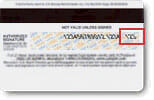Conveyancing For Both Parties – A High Risk Practice
 OPINION
OPINION
by Tim O’Dwyer M.A., LL.B
Solicitor
Consumer Advocate
watchdog@argonautlegal.com.au
Acting for both parties is an unwise, high-risk practice for solicitors and their trusting clients. It should be prohibited absolutely by law.
Brisbane solicitor Richard Ebbott is mentioned twice in real estate rebel Neil Jenman’s book, DON’T SIGN ANYTHING! Jenman describes how Ebbott handled the conveyancing for two Sydney clients who lost more than $50,000 each after buying two overpriced Brisbane townhouses. Then four years later Ebbott acted for Victorians Murray and Helen Casey who had been pushed into signing for a Gold Coast unit overpriced by $70,000.
After discovering the distressing truth Helen Casey called Ebbott to cancel. He said, “You have signed and you cannot pull out and if you do you will be sued by the property owner.” Funnily enough, three years after that Ebbott told Sydney clients John and Barbara Hamilton, who wanted out of their overpriced contracts, almost the same: “You both signed the contracts for the purchase of the two properties, you did sign freely and voluntarily and without any pressure from anyone.”
Ebbott finally faced a little justice when he pleaded guilty to professional misconduct charges laid by the Queensland Law Society in the Solicitors Complaints Tribunal (SCT).
The charges arose from a number of conveyancing matters from 2001 where he acted for the sellers and their buyers. The SCT fined Ebbott $25,000.00 with costs. It took into account, among other things, his plea of guilty, his professed remorse and his since-altered practice methods. Ebbott undertook not act again for both parties in conveyancing matters.
In the lucrative transactions in question, he had received two lots of professional costs while a marketing agent, who had referred the buyers to him, collected substantial commissions from the settlement proceeds. There was evidence, the SCT found, of purchase prices inflated to cover the middleman’s marketing commissions. These commissions were disclosed to the sellers but not to the buyers. In most transactions the payments were made on top of regular commissions paid to the selling agents. The marketing commissions ranged from $10,450.00 to more than $30,000.00. On one sale the marketeer’s commission was one third of the purchase price.
In most cases Ebbott neglected to tell the buyers he also acted for the sellers, and in every transaction he failed to obtain his clients’ voluntary and informed consents. As well he failed not only to give “undivided fidelity to the interests of the client”, but also to recommend independent valuations.
The SCT found all professional misconduct charges proved. Ebbott breached his duty as a solicitor by acting when his clients’ interests conflicted, he failed to disclose to buyers not only the nature and implications of the conflict but also all matters (known to him) relevant to the buyers’ decisions to enter into and proceed with their purchases. These findings, the SCT hoped, would be noted “by the profession at large of the risks involved when practitioners act for both parties in a transaction.”
A Law Society spokesman added, “It sends a strong message to the small minority in the profession who try to get away with this sort of thing.”
My view, as one who has rescued many gullible folk from the clutches of shysters, is that solicitors’ collaboration with real estate rogues remains widespread. The Law Society was not only merely scratching the surface with this and other recent prosecutions of marketeering solicitors, but also it stands condemned for not universally stopping solicitors from acting for both parties in conveyancing matters. It has failed miserably to warn the public of the actual and potential conflicts of interest in even the simplest real estate sale.
Acting for both parties is an unwise, high-risk practice for solicitors and their trusting clients. It should be prohibited absolutely by law.
Eight years ago the Beattie Government boldly legislated to require all conveyancing solicitors to declare to purchaser clients whether they were independent of everyone else involved in the sale. But it lamely left out any obvious penalty for those who neglect to give this declaration. However court action may be taken against solicitors who make false or misleading declarations. Sadly nothing in the legislation prevents solicitors acting when they are not independent.
Finally, back to Ebbott. Litigation lawyer Judy Teitzel once told me that, when she proceeded to sue him on behalf of a number of his former conveyancing clients, she needed to ask the Law Society more than once to force Ebbott to release files to her. (For more on the late Judy Teitzel see: Hey Jude, You Were A True Battler For The Battlers)
And how did the Law Society respond to John and Barbara Hamilton when they complained about Ebbott? The Society explained firstly that it recently lost costly prosecutions of two solicitors involved in two-tier marketeering deals because it could not prove the solicitors “positively knew that the properties were sold for more than their true value.” Secondly, while the Society appreciated Hamiltons’ view that Ebbott was “an integral part of the scheme” (to sell them properties overpriced by $70,000), it had no evidence in their case that he was “guilty of unprofessional conduct, or professional misconduct.”
For more information see:
In the Matter of Richard Frank Ebbott
Lawyers Conveyancing is proud to sponsor the REIC
To post your comment on this item, please return to
 |
Legal Notice
All visitors to this website are advised to visit our
Disclaimer regarding the limited use of information provided on this website, and our Conveyancing Section for conveyancing consumer information.


